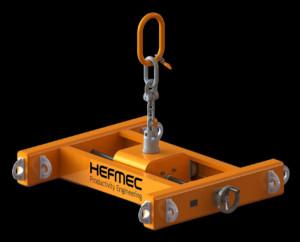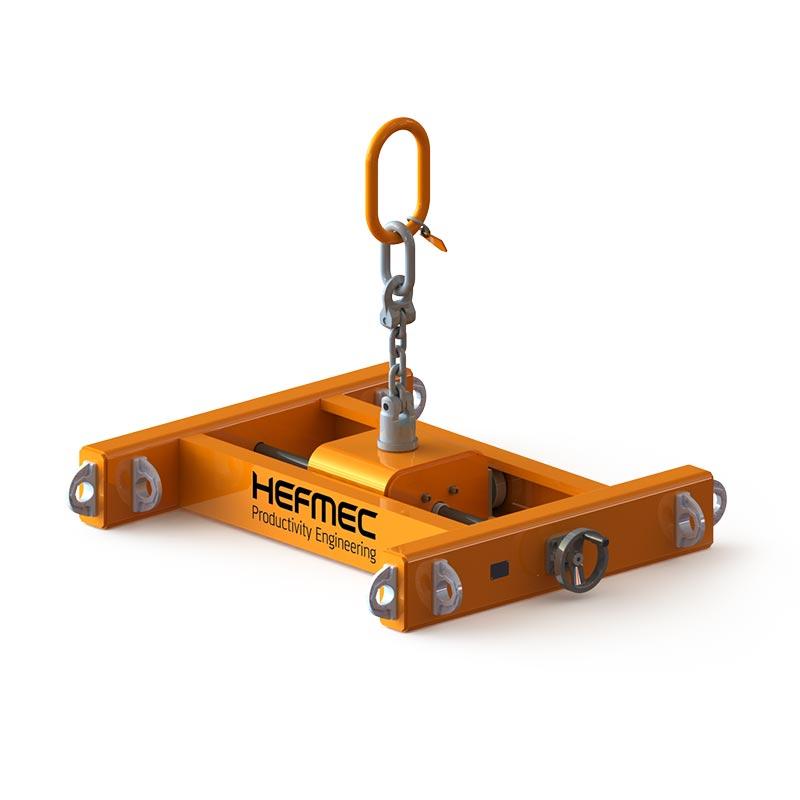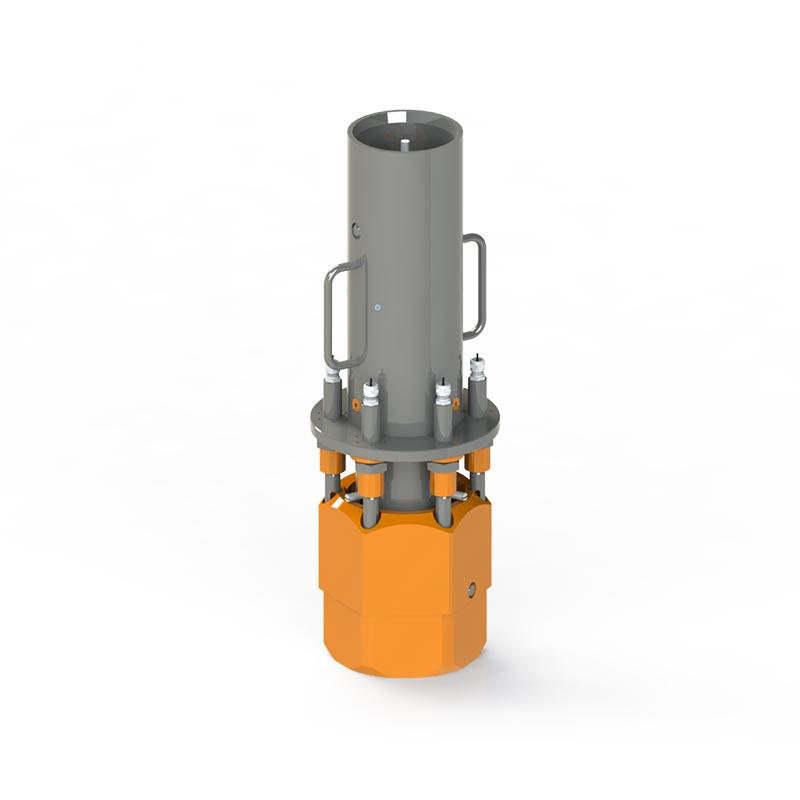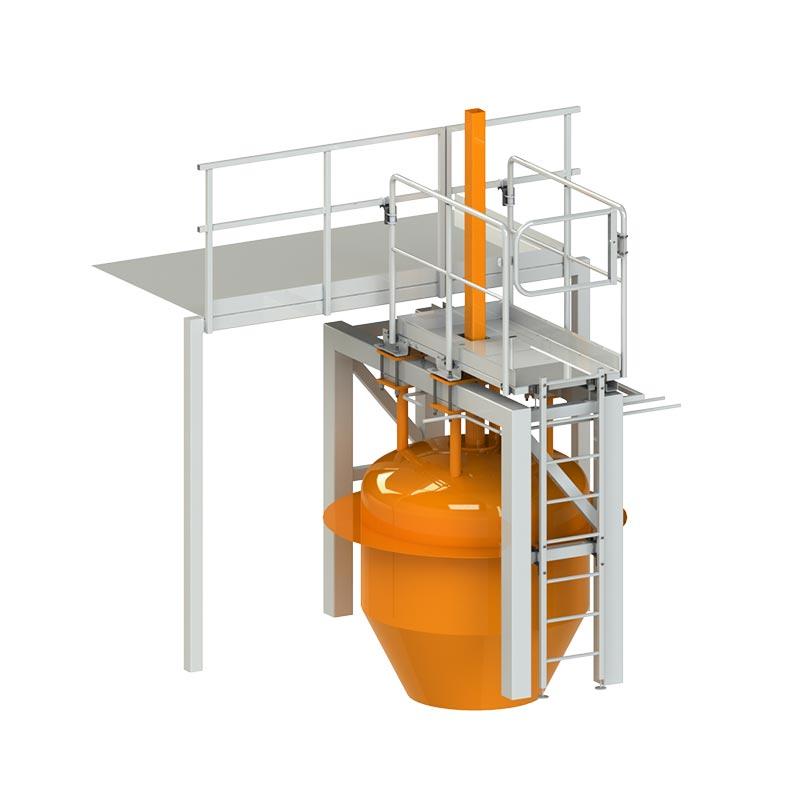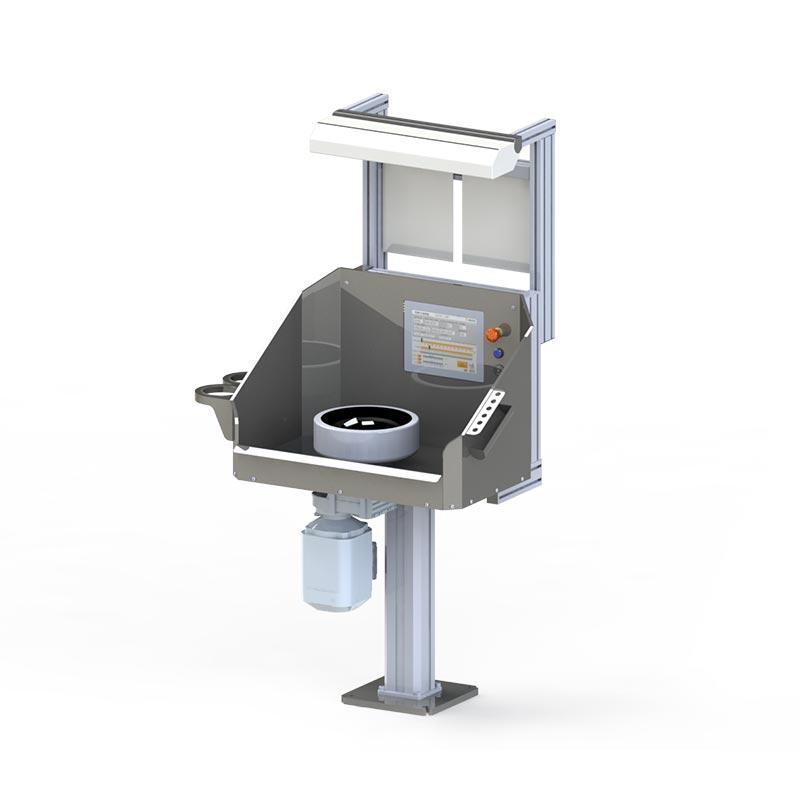Moving heavy objects in confined spaces requires specialised tools and careful planning. Efficient forklift tools are essential when handling heavy loads in places where space is limited. The use of correctly designed lifting equipment can significantly improve safety, save time and avoid damage to both the objects being moved and the environment. The success of lifting operations depends to a large extent on the suitability of the tools and the professionalism of their operators.
What are the most efficient forklift tools for tight spaces?
Working in confined spaces requires particular care when choosing tools. Chain hoists are excellent tools for confined spaces, offering high lifting power in a small size. Hefmec chain slings are designed to withstand heavy use and provide precise control when moving heavy objects.
Hydraulic cranes are another effective option in confined spaces. They provide precise and controlled lifting power and are often more compact than mechanical alternatives. Hydraulic systems can also be positioned away from the actual lifting point, making them particularly practical when working space is limited.
Specially designed transfer equipment, such as Hefmec’s axle handling trolleys, are tailored to meet the needs of challenging transfer operations. These trolleys allow heavy and awkwardly shaped pieces to be handled safely and efficiently, which is particularly valuable in confined spaces.
| Tool | Suitability for confined spaces | Benefits |
|---|---|---|
| Chain mail | Excellent | Compact size, high lifting power |
| Hydraulic cranes | Good | Remote manoeuvrability, precise control |
| Handling trolleys | Excellent | Adaptability, versatility |
How to plan the safe movement of heavy objects?
Careful planning of the recovery operation is the basis for safety. A thorough risk assessment should be carried out before each move, taking into account the challenges posed by confined spaces in particular. This includes mapping routes, identifying potential obstacles and ensuring the necessary clearance.
Hefmec’s experts offer comprehensive assistance in the preparation of wastewater treatment plans. Our experience from over a thousand tool projects ensures that we know the procedures that work to ensure a safe and smooth transfer operation. The planning phase also defines the necessary tools, personnel and safety protocols.
Safety considerations also include proper training of workers in the use of the forging tools used. This reduces the risk of accidents and ensures that the operation is carried out efficiently and professionally. If necessary, Hefmec will provide training on the correct use of the tools.
Why are professional forging tools worth the investment?
High-quality tools may seem more expensive at first, but their cost-effectiveness will show in the long run. The professional forging tools offered by Hefmec are designed to withstand heavy use for years, even decades. This long life makes them an economically sound investment.
Improved occupational safety is another major benefit. Appropriate tools reduce the stress and risk of accidents for workers, which in turn reduces sickness absence and related costs. They also speed up work processes, saving time and money.
The economic benefits of professional tools are also reflected in reduced breakdowns and maintenance needs. Hefmec’s high-quality tools are reliable and require less maintenance than cheaper alternatives. This reduces unexpected downtime and keeps production processes running.
What special solutions are available for very narrow spaces?
Innovative solutions are needed in very limited spaces. Hefmec has developed tailor-made systems to suit these challenging environments. For example, modular transfer systems can be assembled and disassembled in sections, allowing them to be used in very confined spaces.
One example is Hefmec’s spherical turning table, which allows heavy objects to be turned in a limited space. This tool is designed taking into account the geometry of the workpiece and any special requirements, such as sensitive or vulnerable surfaces.
Another example is the container tipper, which can turn almost any shape of container or receptacle easily, quickly and safely, even in tight spaces. These special solutions have proved invaluable in a number of challenging projects where traditional methods have failed.


